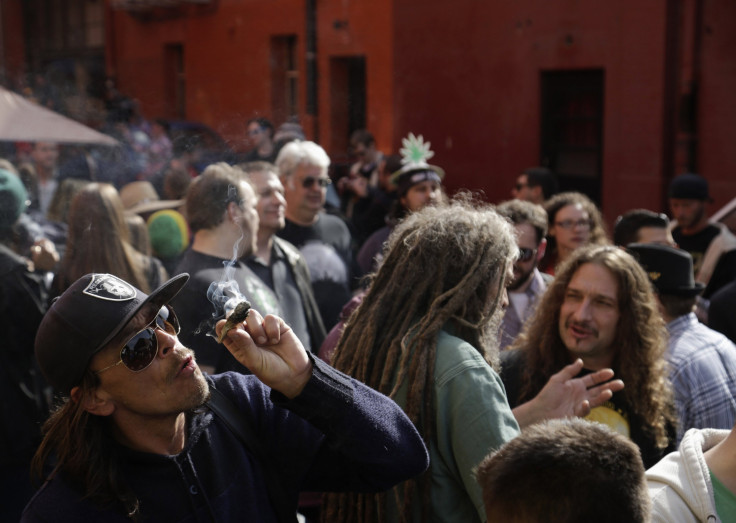Washington Pot Shortage Hurts Pot Tourism

A shag-carpeted vehicle called the CannaBus whisks passengers in Seattle from a marijuana dispensary to a cooking demonstration. An outfit called Kush Tourism takes visitors to a bong-making glass blower, a marijuana speakeasy or a meeting with “Farmer Tom” Lauerman, the “Walt Whitman of weed.” The trappings of a thriving pot tourism industry are there -- just as Washington residents hoped when they legalized the drug two years ago. But there's a problem: It's hard to grow a marijuana tourism business when the crucial ingredient is missing.
“People are coming to Seattle because cannabis is legal here…. But the supplies aren’t there,” said John Davis, executive director of Coalition for Cannabis Standards and Ethics and CEO of Northwest Patient Resource Center, a medical dispensary in Seattle. “Currently, the system is a disaster. There’s not enough to sell.”
After legalization and the Washington State Liquor Control Board’s announcement last year that it would issue 334 licenses to retail pot businesses, investment interest in the marijuana industry skyrocketed.
Colorado legalized marijuana the same day as Washington did. But unlike Washington, Colorado met its goal of opening its first pot retail stores on Jan. 1. By April, the state's marijuana tourism industry was booming. Colorado Pot Guide, the unofficial authority on pot tourism in the state, lists 18 marijuana tour operators and several marijuana social lounges on its website. Toni Fox, owner of 3D Cannabis Center, a medical and recreational marijuana dispensary in Denver, said that about 60 percent of her customers are tourists. “We’re not selling our daily pot to [in-state residents],” she told IBTimes.
Colorado allows licensed operators to consolidate the growing, processing and selling of marijuana under the same roof, but Washington complicated the process by parceling out roles to growers and sellers. Colorado’s weed market also included cannabis-infused edibles, which have been a big hit with out-of-state visitors -- something Washington won’t permit until manufacturers pass health inspections.
So Washington's pot tour companies are essentially themed transports. They cannot legally serve marijuana products to their customers. Even if tourists can get their hands on some of the scarce Washington bud, the state prohibits smoking in public places or in public view. Most hotels don’t allow marijuana smoking on their premises. Cannabis tour operators in Washington have to scramble for lodgings to recommend to clients.
“We’re actually calling [hotels] and asking, ‘Hey, do you allow people to smoke cannabis on your property?’” said Michael Gordon, CEO and director of PR and marketing at Kush Tourism.
But the logistical challenges may be easier to solve than the pot shortage. Some dispensaries which were licensed to open on July 7 had no weed to sell, Davis said. Dispensaries that did open with a limited amount of product had to close their doors a few days later when their supplies ran out. Inexorable market economics means that the low supply has led to high prices. And local experts say bigger harvests -- "grows" -- won't be ready for weeks, so the imbalance between supply and demand is likely to persist. Meanwhile, medical marijuana in Washington is flourishing, but state regulations keep the medical and recreational supply lines distinct.
When they legalized marijuana two years ago, Washingtonians saw a chance to replicate the success of the state's wine country tasting tours. It made all kinds of sense -- except that they forgot to factor in the importance of the grape.
© Copyright IBTimes 2024. All rights reserved.






















